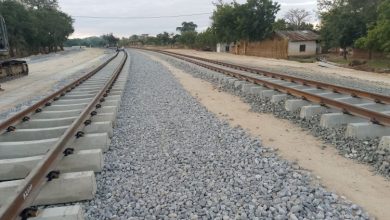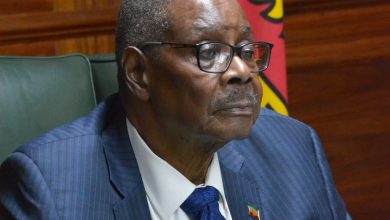Fuel scarcity haunts Chakwera, warns Nocma
President Lazarus Chakwera has lamented purported sabotage by some officials at National Oil Company of Malawi (Nocma) and “corrupt” cartels as factors destabilising fuel supply in the country.
In an address from Sanjika Palace in Blantyre monitored on taxpayer-funded Malawi Broadcasting Corporation last evening, the President also announced that beneficiaries of Affordable Inputs Programme (AIP) will redeem a 50 kilogramme (kg) bag of fertiliser at K15 000 “as was the case last year” while farmers outside the AIP realm with bigger land size and organised in clubs will buy a 50kg bag from outlets at K90 000.
Chakwera, who had during his rally in Blantyre on Sunday hinted at unveiling reduced fertiliser prices, focused more on the fuel crisis that has been recurring during his tenure largely attributed to foreign exchange scarcity.

Pleading for forgiveness from Malawians, the President said the current fuel crisis was deliberately created by “some individuals” at the State-owned fuel importer, Nocma, who purportedly frustrated timely imports to make his administration fail and to personally benefit from kickbacks.
“I ask for your forgiveness. Some officials at Nocma intentionally frustrated the timely importation of fuel,” said Chakwera, directly addressing those spending hours searching for fuel.
He said the fuel crisis was an effect of a war against corrupt interests and that it was unfortunate that unsuspecting motorists were caught in the crossfire.
The President vowed to fire the officials at Nocma, but only after the September 16 General Election.
To avert the crisis, Chakwera said government has engaged other companies outside the usual system.
He said: “We have already engaged some companies to help with fuel during these shortages and 240 trucks have already started arriving. Things should improve by this coming Sunday.”
Chakwera also justified his administration’s shift from open tender system to Government-to-Government (G2G) procurement of fuel, arguing it cuts out expensive intermediaries.
“They [intermediaries and corrupt officials] are not happy with the government-to-government arrangement because it eliminates middle men,” he said.
Malawi Government procured the first G2G fuel of about 48 million litres worth $27 million in July this year compared to $40 million using middlemen.
On fertiliser, the President said the new price packages will be effective October 1 this year.
In the past two farming seasons, AIP beneficiaries were redeeming fertiliser at K15 000 while in the first year of Chakwera and the now disintegrated Tonse Alliance in 2020/21, the bag was redeemed at K4 900, apparently in tandem with a campaign promise to lower fertiliser prices.
Between June 2020 when Chakwera came to power and now, prices of fertiliser have gone up from around K25 000 per 50kg bag to K160 000.
Yesterday, the President also blamed the high fertiliser prices on crooked businesspersons conspiring with an opposition party to sabotage his administration.
While not naming the specific party, he said the concerned party had quickly rushed to the media ahead of his address to pre-empt his announcement. Earlier yesterday, opposition Democratic Progressive Party (DPP) officials addressed the press in Blantyre and commented on the fertiliser prices (see story on page 4).
Defiantly, the President said: “They will not win this fight. I will continue to fight for poor farmers in this country. They want people to say Chakwera is the one hiking prices, but I won’t stop protecting farmers till 2030.”
But commenting on the President’s address, Centre for Social Accountability and Transparency executive director Willy Kambwandira said Malawians expected practical solutions to the economic crisis.
He said: “Given the proximity of the general election, President Chakwera’s speech was more of an appeal to voters aimed at persuasion and winning votes.”
Malawi has experienced rising commodity prices, which authorities have attributed to the Russia-Ukraine war that disrupted global supply chains; the lagging effects of the Covid-19 pandemic and successive natural disasters such as cyclones and droughts that ravaged critical infrastructure and forced government to borrow for recovery and reconstruction.





